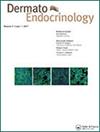影响中国大学生HPV疫苗接种犹豫不决的因素:利用 3Cs 模型进行的横断面调查。
IF 4.8
4区 医学
引用次数: 0
摘要
HPV疫苗已被证明是降低宫颈癌发病风险的有效方法,但在中国的大学生中仍未得到充分利用。为了评估COVID-19疫情爆发后广东省大学生HPV疫苗接种犹豫的现状,系统分析HPV疫苗接种犹豫的影响因素,并基于WHO 3Cs模型构建预测模型。研究于2023年6月对广东省四个城市的女大学生进行了横断面网络调查。数据采用二元逻辑回归分析,重点关注 3Cs 模型:自满(Complacency)、便利(Convenience)和信心(Confidence)。采用 LASSO 回归分析被认为具有重要意义的变量,并构建预测模型。在 1399 名参与者中,86.5% 表示对接种 HPV 疫苗没有犹豫。然而,有 11.9% 的人表示犹豫不决,1.6% 的人完全拒绝接受疫苗接种。对疫苗疗效的信任、对 HPV 感染风险的认知、价格因素以及距离或时间等限制因素是导致犹豫不决的重要原因。对 HPV 疫苗的了解、社会人口特征以及参与者母亲的教育水平也是造成犹豫不决的原因之一。建议在教育机构内实施有针对性的干预措施,以提高人们对宫颈癌和 HPV 疫苗的认识,简化疫苗接种预约的时间安排,并通过实施战略性采购措施或补贴计划来提高人们的经济承受能力。本文章由计算机程序翻译,如有差异,请以英文原文为准。
Factors influencing HPV vaccine hesitancy among university students in China: A cross-sectional survey utilizing the 3Cs model.
The HPV vaccine, which has been demonstrated to be an effective method of reducing the risk of developing cervical cancer, is still being underutilized among college students in China. To assess the current status of HPV vaccine hesitancy among college students in Guangdong Province after the COVID-19 outbreak, and to systematically analyze the influencing factors of HPV vaccine hesitancy and construct a prediction model based on the WHO 3Cs model. A cross-sectional web-based survey was conducted in June 2023 among female college students in four cities in Guangdong Province. The data were analyzed using binary logistic regression with a focus on the 3Cs model: Complacency, Convenience, and Confidence. LASSO regression was employed to analyze the variables deemed to be of significance and to construct predictive models. Out of 1399 participants, 86.5% expressed no hesitancy toward HPV vaccination. However, 11.9% exhibited hesitancy, and 1.6% refused vaccination altogether. Factors such as trust in vaccine efficacy, perception of HPV infection risk, price considerations, and constraints like distance or time were significant contributors to hesitancy. Knowledge of the HPV vaccine, socio-demographic characteristics, and the educational level of participants' mothers also played a role in vaccine hesitancy. It is recommended that targeted interventions be implemented within educational institutions with the aim of raising awareness of cervical cancer and HPV vaccines, simplifying the scheduling of vaccination appointments, and increasing affordability through the implementation of strategic purchasing measures or subsidy schemes.
求助全文
通过发布文献求助,成功后即可免费获取论文全文。
去求助
来源期刊

Human Vaccines & Immunotherapeutics
BIOTECHNOLOGY & APPLIED MICROBIOLOGY-IMMUNOLOGY
自引率
8.30%
发文量
0
审稿时长
1 months
期刊介绍:
(formerly Human Vaccines; issn 1554-8619)
Vaccine research and development is extending its reach beyond the prevention of bacterial or viral diseases. There are experimental vaccines for immunotherapeutic purposes and for applications outside of infectious diseases, in diverse fields such as cancer, autoimmunity, allergy, Alzheimer’s and addiction. Many of these vaccines and immunotherapeutics should become available in the next two decades, with consequent benefit for human health. Continued advancement in this field will benefit from a forum that can (A) help to promote interest by keeping investigators updated, and (B) enable an exchange of ideas regarding the latest progress in the many topics pertaining to vaccines and immunotherapeutics.
Human Vaccines & Immunotherapeutics provides such a forum. It is published monthly in a format that is accessible to a wide international audience in the academic, industrial and public sectors.
 求助内容:
求助内容: 应助结果提醒方式:
应助结果提醒方式:


